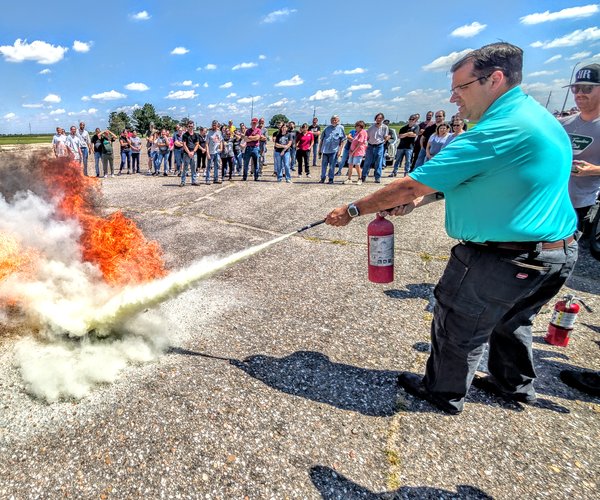As of Tuesday, Aug. 12th, the drought monitor report indicates the continued marked improvement of the previous several weeks. Less than 1% of the state is in severe drought with 3.5% in moderate drought. 86% is totally out of dry conditions. The six-to ten-day outlook (Aug. 18 to 22) indicates a 40 to 60% chance of likely above normal for temperatures and near normal to leaning slightly above normal for precipitation. The eight to 14-day outlook (Aug. 20 to 26) indicates a 33 to 40% chance of leaning above normal for temperatures and a 33 to 40% chance of leaning below normal for precipitation. Not awful for summer crops.
Fall is almost here. Schools are starting back up. For those in any aspect of crop production and handling, things are going to become quite busy for the next several months. Why bring this up? Labor. When the state and federal statisticians present statistics on employment and unemployment along with the number of job openings, it’s nonfarm employment. This ignores the need for employees in the ag sector. Just like farmers and ranchers, the average age of those working in agriculture is older. Many are retiring or near retirement. Even though these are challenging times for agriculture, the need for qualified employees is there. Good careers with good salaries and benefits.
Many not involved in agriculture think they are only looking for employees with an ag background. While they may prefer that, it’s simply not possible or practical. There aren’t enough people out there with a farm background to fill the need. What they are looking for is potential employees who possess a good “work ethic”, motivated, willing to learn, and wanting a career. They simply want people who can do the job, whether they are 18 or 58. For many who are working hard but need a better income and those working more than one job, there are opportunities for good careers with stable income and benefits.
And many of these positions don’t need a four-year degree. Often certificate programs or two-year degrees provide the necessary training for a career. What careers are available with a shorter-term education: Crop protection, beef cattle, ag. business, trucking, scale technician, co-ops, seed sales, agriculture technician, technician and many more.
A college like Barton has programs designed to meet the needs of the ag industry and the potential employees. Crop Protection and Beef Cattle Production certificates can be completed in two semesters with classes designed for the morning to allow students afternoons to work. The Scale Technician program may be completed in one semester with employers waiting for completers. Ag Business Management and Crop Protection have two-year AAS degrees. There is a CDL program completed in one semester. For some, the welding program has several options. All these options are designed to have students completed in a short time, emphasize the necessary skills for the area, and student to gain employment immediately.
Dr. Victor L. Martin is the agriculture instructor/coordinator for Barton Community College. He can be reached at 620-792-9207, ext. 207, or martinv@bartonccc.edu.





